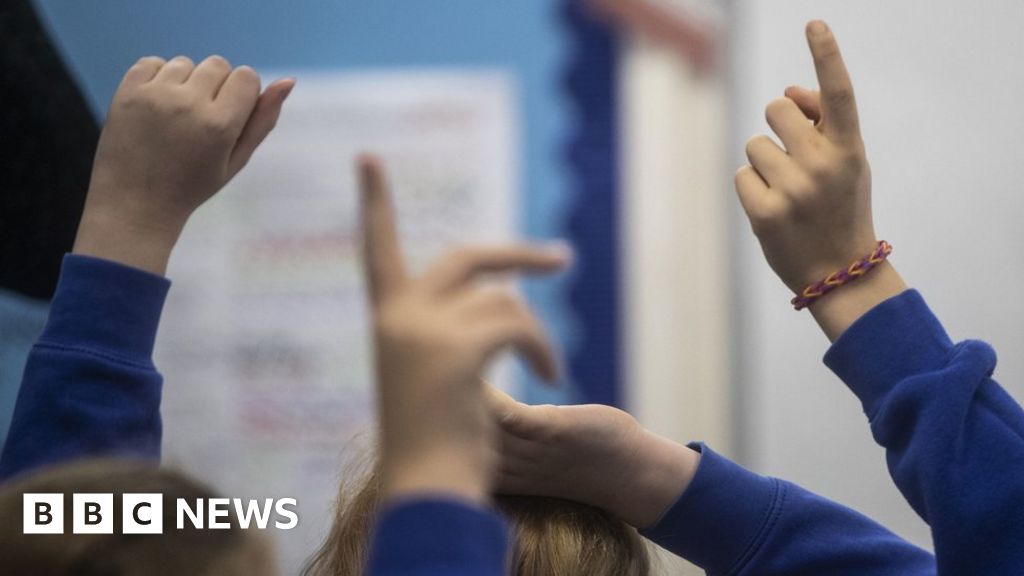Don’t they understand that the problem with our education system is not that it doesn’t teach useful real world things - it’s that it’s so crushingly dull that it destroys any natural curiosity that kids have. This proposal will make that worse.
The issue is we only teach one method for approaching Maths so if you don’t get it, tough.
In primary and secondary school I always struggled with Maths. During university I spent most of my energy reverse engineering the maths lessons so I could understand them.
Years later my sister was struggling with her Maths GCSE, I spent one evening explaining how I solve each type of problem. She went from a projected D to getting an A.
I was explaining this to an ex maths teacher who started asking how I approached things. Apparently I used the Indian method for one type of problem, the asian for anouther, etc…
The idea a student was struggling with one way of solving the problem and teaching them alternative methods never occurred because it was “outside the curriculum”.
These days I quite like Maths puzzles.
The idea a student was struggling with one way of solving the problem and teaching them alternative methods never occurred because it was “outside the curriculum”.
It’s a tough balance of being ‘outside the curriculum’ vs ‘they don’t have time’. There’s lot of methods of doing most things in maths. Teachers usually will be trying to take an evidence-based approach of which method is supposedly the most effective for the most people (but unfortunately won’t be the most effective for everyone. And then with the amount stuffed into our school curriculum, there just isn’t time to cover the alternate methods
Plus the standardised testing, plus the reliance on the falsehood that memorisation of facts = education, plus the terrible student to teacher ratio, plus the hostile classroom environment which leads to bullying, plus the complete disregard for individual learning styles and forcing 1-hour lessons and constant switching of topics…
Yeah, there’s a lot more wrong with the education system than it looks like labour have plans to fix.
They will still get my anti-tory vote, and to them that’s all that matters, but they won’t get my pro-labour vote with this as it’s clear that real education reform is still a lost cause.
That seems to be the goal, though.
household budgeting, currency exchange rates when going on holiday, sports league tables and cookery recipes.
Not really.
There are multiple ways to approach and conceptualise multiplication, division, simultaneous equations, binomial distribution, probability, etc…
I have met a few maths geniuses and we teach Maths the way they think and conceptualise Maths.
In my last job I was viewed as a superstar because I could take the algorithms the data scientists produced and explain them to non data scientists.
I didn’t change the underlying maths, I tailored what to explain and examples to use based on my audience. This tended to get people really excited at what the data scientists had done.
Its the same with teaching, people need to understand and conceptualise a problem in a way that makes sense to them.
How is that not the idea behind using relevant real-world applications?
Using real world applications is changing the problem (what are you trying to solve).
My issue is teaching how you solve the problem.
As an example the indian method to teach multiplication is to draw lines equal to the first number, then perpendicular lines equal to the second and then count the points they bisect (e.g. draw 3 horizontal and 3 vertical lines and they cross 9 times).
Lastly I coach people in Agile (its a way of delivering stuff). An Agile team is brought together because a Product Owner has a problem and a vision on how to solve it.
The biggest factor in motivating a team and getting high performance is the product owners passion for their vision. You can have the most interesting problem in the world, if the product owner doesn’t care neither does the team.
I suspect the same is true of teaching
I see. Yes, I’m a former software developer and am familiar with agile practices.
Agreed. Great teachers and speakers describe complex concepts in a language that is appropriate for the student.
One of the reasons kids can find math so dull is because it’s not taught with enough relation to the real world. Maths teaching is often reduced to only doing sums for the sake of doing sums, which is not going to be interesting with most kids.
What makes maths interesting is how it can be used to understand there working of the real world, and if that connection isn’t made it’s very hard to create a lasting interest in maths among students.
I agree. I had very mixed success with maths in school. The topics I was the best was things I could understand. E.g. calculation of probabilities or how long it would take for debt to be repaid with certain parameters. But as math got abstract I got lost, because for me it was a just a bunch of formulars that seemed arbitary to me. Maybe it was me or maybe it was the teachers failing to explain why we’re doing what we’re doing.
I struggled massively with the abstract nature of maths at school for several years - oddly, it was our art lessons that fixed it all in my case.
We started looking at (and practicing doing) geometric abstract painting, and suddenly all the maths abstraction made sense when I could think of it visually. Changed me from a “D” student to an “A” student.
Use maths all the time at work and in life these days. Love a bit of maths - thanks to our art teachers :)
Sorry, I posted a reply to your comment in the main feed rather than to you. Back to school for me!
so crushingly dull that it destroys any natural curiosity that kids have
You are right. Children have a much earlier start to school in the UK compared to other countries. This cuts short the time of their “play-based” development. By Year 1 (about 5-6) children in UK primary schools are sat at desks and taught in quite bizarre ways. From Reception (ages 4-5) they are tested continuously to a point where UK children are the most tested children in the Western World. Other, more successful countries (educationally and economically) don’t do this. We have a weird, damaging obsession with testing children and placing them into hierarchies in this country. When testing becomes the purpose and goal of an education system it is, as you say “so crushingly dull”.
Have you heard of democratic schools? They sound really interesting to me. We were considering home ed for our son for a variety of reasons but ultimately started school at the start of year 1. But democratic schools for me seem to strike that balance between the two systems.
Which countries are you referring to out of interest?
This is the best summary I could come up with:
Shadow education secretary Bridget Philipson will say in a speech that children as young as four should learn financial literacy - including budgeting and currency exchange rates.
Labour say poor maths skills in childhood can embed problems that last into adulthood, such as the inability to analyse basic graphs and calculate the value of supermarket offers.
An OECD estimate from 2016 found that nine million working-age adults in England had low basic literacy or numeracy skills - costing the economy £25bn a year.
As part of a pre-planned review of the school curriculum, Labour said it would direct teachers to show children how numeracy is used in the world around them.
Pupils will be taught through maths concepts through household budgeting, currency exchange rates when going on holiday, sports league tables and cookery recipes.
Latest numbers show about 25% of kids do not meet the expected maths level by the end of primary school.
The original article contains 331 words, the summary contains 154 words. Saved 53%. I’m a bot and I’m open source!







